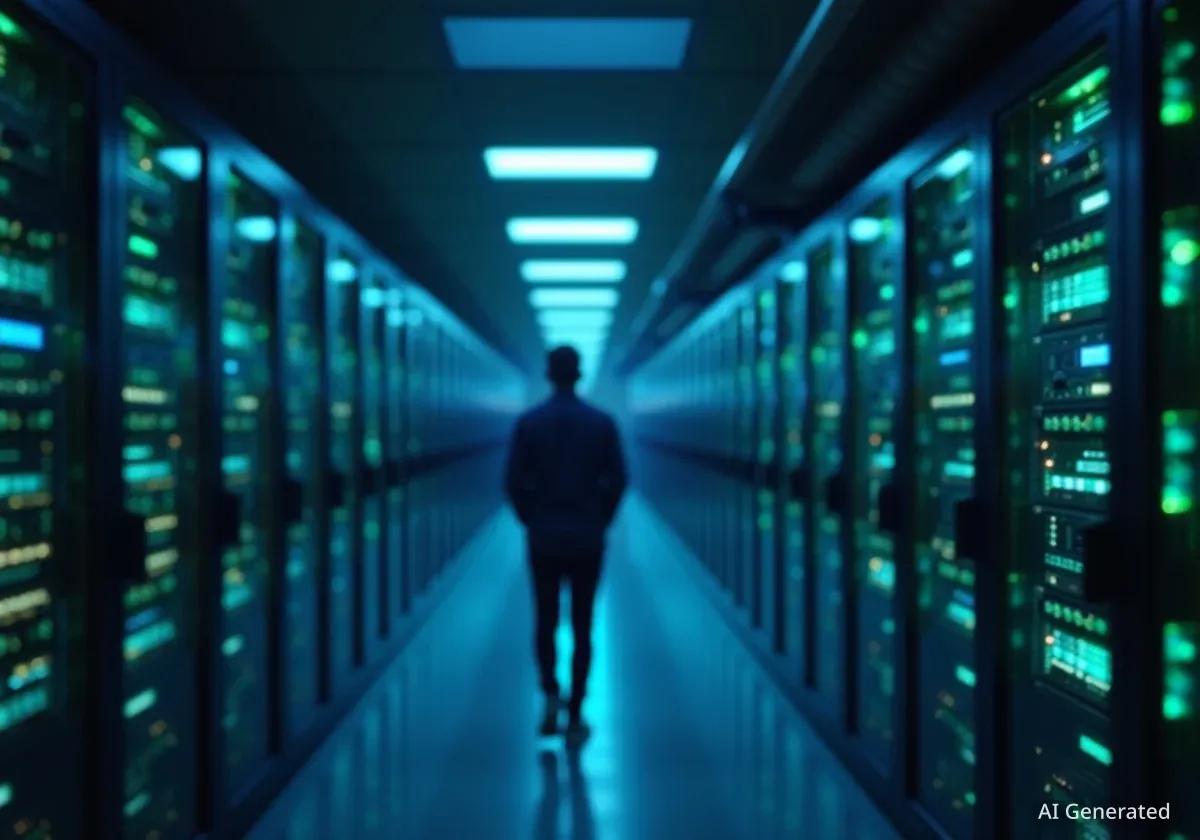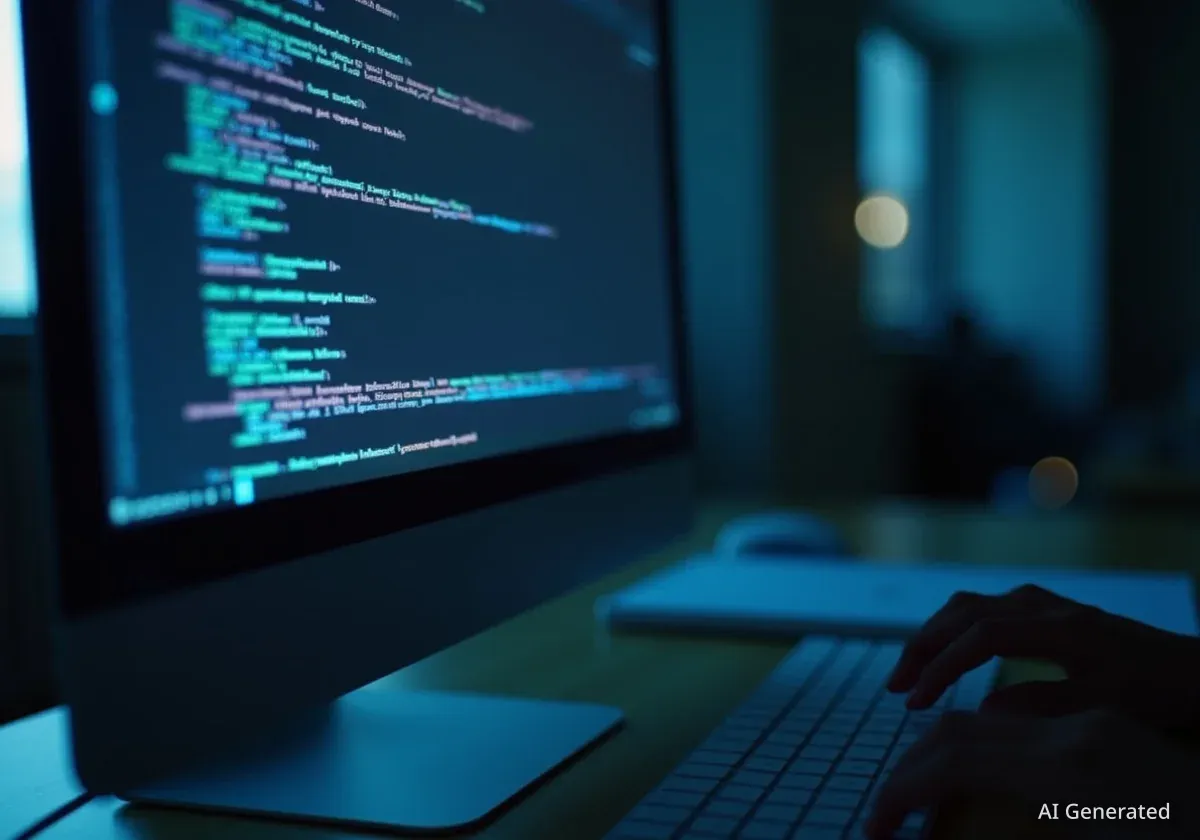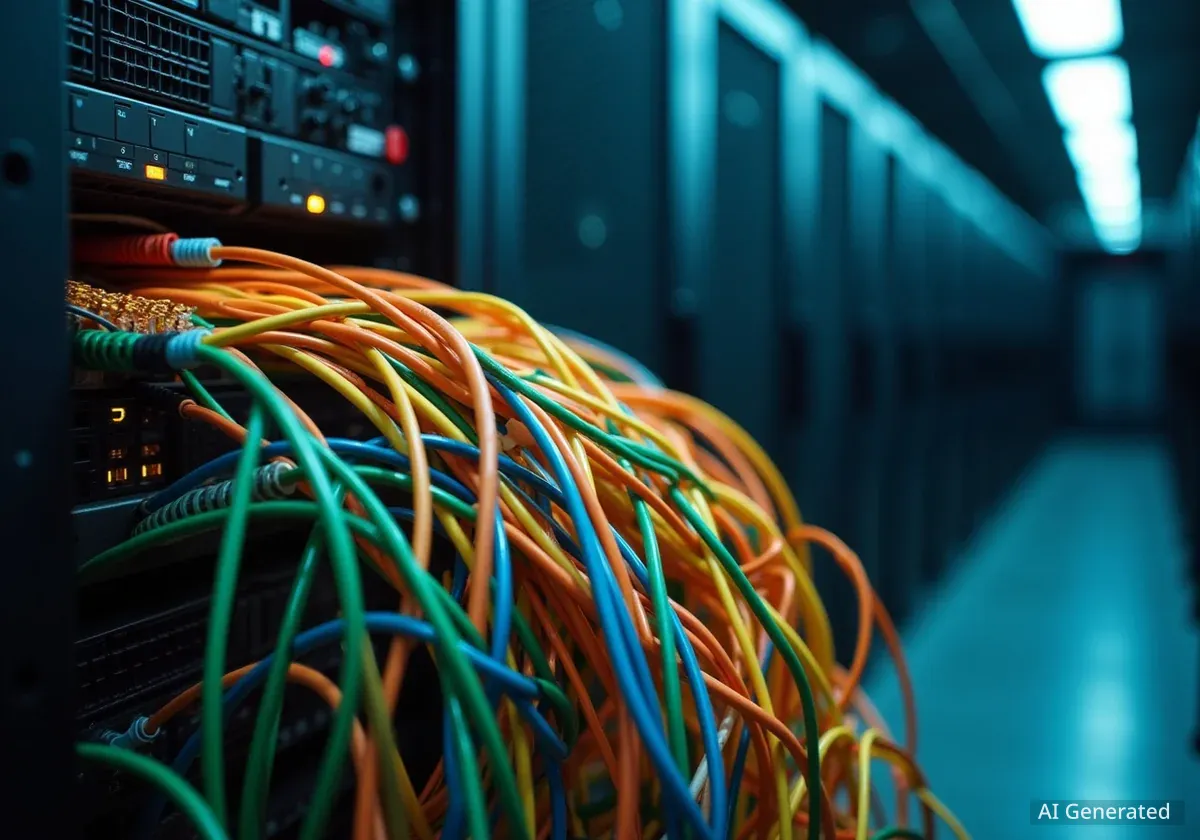A new study reveals that half of all American adults are more concerned than excited about the increasing use of artificial intelligence in daily life. This figure marks a significant rise in public apprehension, according to a comprehensive survey conducted by the Pew Research Center in June 2025.
The research, which surveyed 5,023 U.S. adults, highlights a growing divide between the potential benefits of AI and public fears about its impact on human skills, relationships, and societal trust. While many are open to using AI for specific analytical tasks, there is strong resistance to its involvement in personal matters.
Key Takeaways
- 50% of Americans report being more concerned than excited about AI, an increase from 37% in 2021.
- A majority believes AI will negatively impact human creativity (53%) and the ability to form meaningful relationships (50%).
- 76% consider it highly important to distinguish between human and AI-generated content, yet 53% doubt their own ability to do so.
- The public generally supports AI for data-intensive tasks like weather forecasting but rejects its use in personal areas such as matchmaking and religious guidance.
Growing Public Wariness of AI
The latest data from the Pew Research Center indicates a clear shift in public opinion regarding artificial intelligence. The survey found that 50% of U.S. adults now feel more concern than excitement about AI's expanding role, while only 10% are more excited than concerned. Another 38% feel an equal mix of both emotions.
This represents a notable increase in concern compared to previous years. In 2021, a smaller share of the public, 37%, expressed more concern than excitement. This trend suggests that as AI becomes more prevalent, public apprehension is growing alongside it.
About the Study
The findings are based on a survey of 5,023 U.S. adults conducted from June 9 to 15, 2025. Participants are members of the Pew Research Center’s American Trends Panel, a nationally representative group recruited through random sampling of residential addresses.
The study also found that 95% of Americans have heard at least a little about AI, indicating widespread awareness. Despite this familiarity, a significant portion of the population desires more oversight. Approximately six in ten Americans stated they would like more control over how AI is used in their lives.
Impact on Human Skills and Connections
One of the primary areas of public concern is AI's potential effect on core human abilities. When asked about specific skills, respondents expressed a generally pessimistic outlook.
A majority of 53% believe that the increased use of AI will worsen people's ability to think creatively. In contrast, only 16% think AI will improve this skill. Similarly, 50% of Americans say AI will harm the ability to form meaningful relationships, with just 5% believing it will help.
Human Skills at Risk?
- Creative Thinking: 53% say AI will make it worse.
- Meaningful Relationships: 50% say AI will make them worse.
- Problem-Solving: 38% say AI will make it worse, while 29% believe it will improve.
When asked to describe the greatest risks of AI in their own words, the most frequently mentioned theme was the potential for weakening human skills and social connections. This highlights a deep-seated fear that over-reliance on technology could erode fundamental human qualities.
Identifying AI Content is a Priority
In an era of deepfakes and AI-generated text, the ability to discern authentic content from artificial creations has become a major public concern. The survey found that 76% of Americans believe it is extremely or very important to be able to tell if images, videos, or text were created by AI or a human.
However, there is a significant confidence gap. A majority of Americans (53%) report being not too confident or not at all confident in their own ability to detect AI-generated content. This disparity underscores the public's desire for tools and regulations that ensure transparency in digital media.
"The data shows a strong public demand for transparency. People want to know the origin of the information they consume, but many feel unequipped to make that determination on their own," the report states.
Defining Acceptable Roles for AI
The study reveals a clear public preference for how AI should be integrated into society. Americans are far more comfortable with AI performing analytical, data-heavy tasks than with it playing a role in personal and emotional domains.
Where AI is Welcome
Majorities of the public believe AI should play at least a small role in tasks that involve processing large amounts of data. These areas include:
- Forecasting the weather (74%)
- Searching for financial crimes (70%)
- Detecting fraud in government benefits (70%)
- Developing new medicines (66%)
- Identifying suspects in a crime (61%)
Where AI is Not Welcome
Conversely, there is strong public opposition to AI's involvement in deeply personal aspects of life. Approximately two-thirds of respondents said AI should play no role at all in judging whether two people could fall in love. An even larger majority, 73%, believe AI should have no role in advising people about their religious faith.
This suggests that while Americans see value in AI as a tool for analysis and efficiency, they are protective of human judgment and connection in matters of the heart and spirit.
Generational Divides in AI Perception
The survey identified notable differences in awareness and attitudes across age groups. Younger adults (under 30) are significantly more likely to be aware of and interact with AI than older adults (65 and older). For instance, 62% of those under 30 have heard a lot about AI, compared to only 32% of seniors.
Interestingly, this higher awareness among young adults does not translate to greater optimism. In fact, they are more pessimistic than their older counterparts about AI's impact on human skills. 61% of adults under 30 think AI will worsen creative thinking, and 58% believe it will harm the ability to form meaningful relationships. This indicates that those most familiar with the technology are also among the most concerned about its potential downsides.





